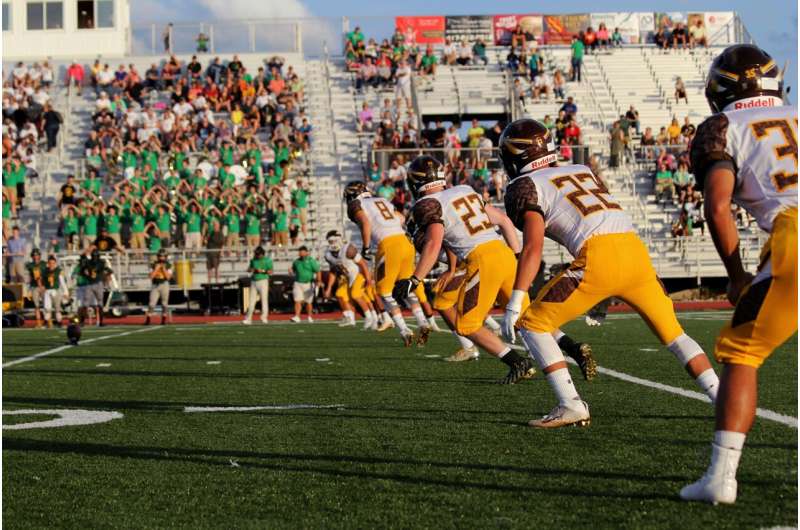ATs Emerge as Pivotal Frontline Defenders Against Mental Health Issues
 While Athletic Trainers are renowned for their expertise in physical rehabilitation, their role in safeguarding the mental health of student-athletes has increased dramatically over the years.
While Athletic Trainers are renowned for their expertise in physical rehabilitation, their role in safeguarding the mental health of student-athletes has increased dramatically over the years.
Their unique position within their community allows them to initiate timely interventions, connect athletes to crucial resources, and ultimately champion the mental well-being of students at every level.
 In the case of Washington State University, ATs are working hard to go beyond injury prevention and rehab. They understand that in an environment defined by fierce competition, immense pressures, and high expectations, it's essential to prioritize the mental well-being of these young athletes.
In the case of Washington State University, ATs are working hard to go beyond injury prevention and rehab. They understand that in an environment defined by fierce competition, immense pressures, and high expectations, it's essential to prioritize the mental well-being of these young athletes.
As the initial point of contact for many student, the WSU Athletic Trainers have emerged as pivotal frontline defenders in the battle against mental health issues.
Recent findings from the National Library of Medicine paint a troubling picture. A staggering 15.6% to 33.2% of collegiate student-athletes are at risk of depression, with first-year students and females often being the most affected. Unfortunately, these figures are consistent with the broader college student demographic, highlighting the widespread nature of the challenge.
At WSU, the athletic department's response has been to make counselors who specialize in athlete mental health readily available.
The sports departments all have Athletic Trainers — like Delaney Jamison, the WSU Spirit's AT — who may be many students' first and only healthcare contact. And their ATs can act as a confidant, and certainly as a bridge to connect student-athletes to a range of mental health resources.
Jamison's approach encapsulates the crucial role the ATs play. When approached by athletes voicing concerns, she listens, assesses their state of mind, and, if necessary, accompanies them to medical consultations.
While not a licensed counselor, her philosophy is holistic, focusing on the entire well-being of the athlete, not just their physical ailments.
By offering an open door, an empathetic ear, and a guiding hand, Athletic Trainers like Jamison are often the first to recognize signs of mental distress and facilitate timely interventions.
Peyton Wilson, a WSU cheerleader, attests to the challenging balancing act student-athletes juggle daily. With school, personal life, friendships, and demanding athletic schedules, mental health can sometimes take a back seat:
“WSU does a really good job providing help with mental health, they provide a lot of different resources to connect athletes with the help they might need. School is already stressful enough, and staying on top of athletics is an added stressor. You have to balance more and it takes up more time, which can really weigh on your mental health.”
It's in these moments, when the pressures mount, that Athletic Trainers become invaluable. Their proximity and daily interactions with the athletes allow them to detect subtle shifts in behavior or performance, which could be indicative of underlying mental struggles.
Yet, the challenge extends beyond just identifying the problem. WSU's athletic community recognizes the need for a cultural shift, one that places mental well-being at the forefront.
The prevailing 'leave it at the door' mentality in collegiate athletics can stifle conversations around mental health.
Jamison believes that by altering team and coaching cultures, the stigma surrounding mental health can be dismantled.
“I definitely think mental health should be a priority. If coaches make it a priority to emphasize to their athletes to take care of themselves outside of practice and emphasize that they are not alone in their mental struggles, conversations about mental health might feel like more of a priority.”
![HR Logo [Recovered]_Full Color Vertical-1](https://blog.healthyroster.com/hs-fs/hubfs/HR%20Logo%20%5BRecovered%5D_Full%20Color%20Vertical-1.png?width=199&height=178&name=HR%20Logo%20%5BRecovered%5D_Full%20Color%20Vertical-1.png)
 By
By


